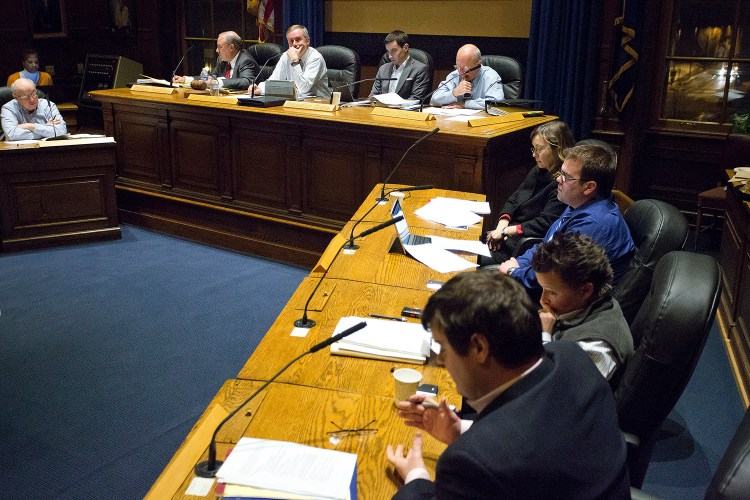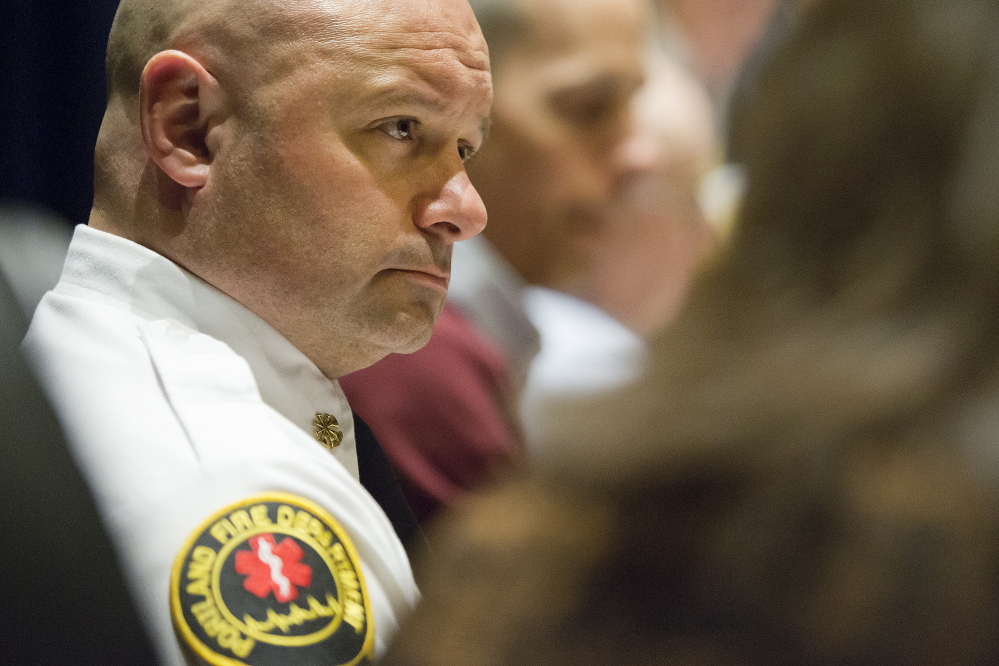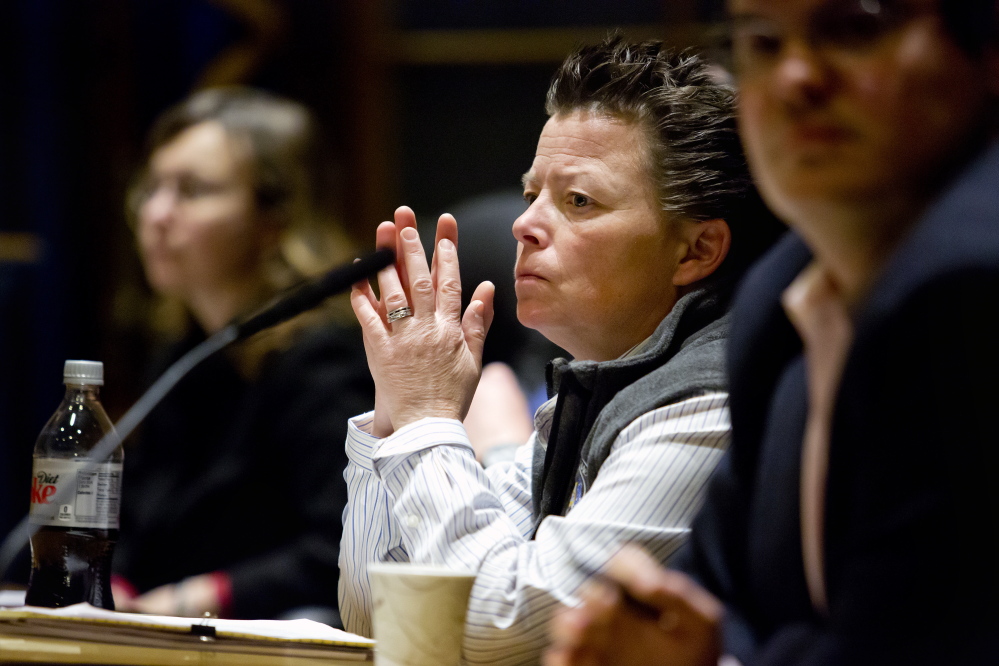Changes to the city’s housing inspection program are in limbo after a City Council committee failed on Tuesday to vote on a series of recommendations put forward by a task force that has been studying the issue since a fire killed six young people in November. The task force, which met on a weekly basis at times, prepared a list of reforms to be considered in the upcoming budget process.
But now, it appears the acting city manager will need to draft a budget with one of the key recommendations, the creation of a new housing safety office, being questioned by the council’s Public Safety, Health and Human Services Committee.
“Personally I’m still not sold on the separate department,” said City Councilor Edward Suslovic, who chairs the committee.
The proposed housing safety office would be staffed by a coordinator overseeing three housing inspectors who would be trained in both building and fire safety codes.
But Suslovic balked at the idea, even though task force said the cost of the new office, estimated to be $415,000, could be covered by charging landlords a $20 per unit fee to register their rental units with the city.
“I would urge us to take a second look at whether it makes sense to create a separate department, because that may simply make it tougher to coordinate resources,” Suslovic said.
He also wanted to see more details about proposed ordinance changes that would give firefighters the authority to inspect buildings with fewer than three units, and respond to questions about the new department at a meeting in April or May. He also pressed city staff to find ways to hold tenants accountable for certain violations, even though staff argued that it was difficult to meet the burden of proof.
Acting City Manager Sheila Hill-Christian appointed the task force to review the city’s inspection program after six people were killed in a two-unit house fire on Noyes Street in November. The city doesn’t currently do regular inspections of buildings with fewer than three units.
After the fire, a review of city records showed that code officers received 13 complaints at the house since 2003 for issues such as trash and combustible materials on the porch. However, code officers only investigated the complaints, and didn’t conduct a full inspection.
Hill-Christian asked the task force, composed of landlords, city staff and an attorney who represents low-income tenants, to work on an accelerated time line, so changes could be considered in the upcoming budget.
Hill-Christian told the committee on Tuesday that she envisioned getting an endorsement for the task force’s recommendations before submitting a formal budget request to the council’s Finance Committee on April 6.
“I’m assuming they would want some feedback from this committee,” Hill-Christian said.
Acting Chief of Staff Julie Sullivan said that the Fire Department would be responsible for inspecting apartment buildings with three or more units, while the new housing safety office would respond to complaints and conduct risk-based inspections based on, among other factors, a building’s age, construction type, number of units and complaint history.
An investigation by the Maine Sunday Telegram detailed the problems with the city’s inspection program, including a lack of follow-up after violations are observed and poor record keeping that prevents the city from building a legal case against landlords who ignore city directives to improve their properties.
The Telegram also discovered an internal list of properties in which the city forbids people who receive General Assistance rental vouchers to live because they have code and fire safety violations. Non-subsidized tenants are not notified about the safety issues.
Committee members did not raise any questions about the internal list, which is not readily available to the public. Suslovic defended the practice, calling it “appropriate.”
Committee members, meanwhile, seemed to support other task force recommendations, including the creation of a central housing database that would help inspectors focus on the most dangerous buildings, while increasing public access to property records.
They also supported enforcing a 25-year-old ordinance requiring landlords to register their rental units with the city, though they questioned whether a $20 per unit fee would be enough to support the program. They also supported the focus on public education.
Eight people spoke during the public hearing.
Landlords were concerned about the cost of registering and a lack of focus on tenant accountability.
“I’m concerned the good people who will register are going to fund a program for people who don’t register,” said Jim Harmon, a landlord.
Residents wanted the city to do more, such as address vacant buildings and rooming houses.
“This is a life-safety thing, as that tragic fire showed,” said Anne Pringle, a West End resident.”
Ashley Summers, whose husband Steven died as a result of burns received in the Noyes Street fire, said increasing inspections is about ensuring safety, not punishing anyone.
Her husband was simply visiting friend when the apartment caught fire and it cost him his life.
“We’re not looking to punish the good landlords or tenants. We’re trying to make the city safe,” Summers said.
Send questions/comments to the editors.





